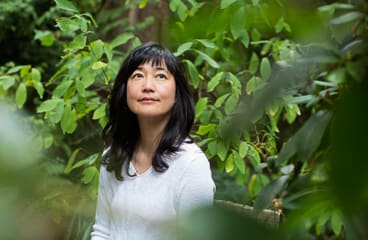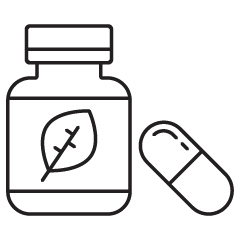
What is menopause?
Menopause is the point in your life when you permanently stop having menstrual periods. After 1 year of having no periods, you've reached menopause.
In most cases, menopause naturally happens around age 50. But everyone's body has its own timeline. You may stop having periods in your mid-40s. Or you might have them well into your 50s. Menopause may start earlier if it's caused by medicines, a procedure, or a disease.
You don't need treatment for it unless your symptoms bother you. But it's a good idea to learn all you can about menopause. Knowing what to expect can help you stay as healthy as possible.
What is perimenopause?
Perimenopause is the process of change that leads up to menopause. It can start as early as your late 30s or as late as your early 50s. How long perimenopause lasts varies, but it usually lasts from 2 to 8 years. You may have irregular periods or other symptoms during this time.
What happens during menopause and perimenopause?
In your late 30s, your egg supply starts to decline and hormone production changes. You may notice a shorter menstrual cycle and new PMS symptoms.
Starting sometime between your late 30s and your early 50s, your periods become irregular. This lasts for 2 to 8 years.
During this time, your ovaries sometimes produce higher and sometimes lower amounts of hormones. This can lead to symptoms such as heavy menstrual bleeding, hot flashes, and trouble sleeping.
About 6 to 12 months before your periods stop, your ovaries stop releasing eggs. Estrogen levels drop. This causes your periods to stop. After a year of no periods, you have reached menopause.
During the next year or so, estrogen levels keep going down. This creates some health concerns, including:
- A higher risk of osteoporosis.
- Skin changes, including thinner, drier skin; thinner, weaker vaginal lining and urinary tract; and a higher risk of vaginal and urinary tract infections.
- A higher risk of tooth loss and gum disease.
What are the symptoms?
Symptoms may include:
- Irregular periods.
- New PMS symptoms.
- Hot flashes and night sweats.
- Trouble sleeping.
- Vaginal dryness and sexual problems.
- Mood swings.
- Feeling depressed or worried.
- Problems with remembering or thinking clearly.
You may have only a few mild symptoms. Or you might have severe symptoms that disrupt your sleep and daily life.
Symptoms tend to last or get worse the first year or more after menopause. Over time, hormones even out at low levels. Many symptoms improve or go away. But sometimes symptoms don't go away.
How are the symptoms treated?

If your symptoms are bothering you, there are treatments that can help.
Medicines
Talk to your doctor about prescription medicines. These can include:
- Hormonal birth control during perimenopause.
- Vaginal estrogen creams, tablets, gels, or rings.
- Hormone therapy (HT).
- Antidepressants.
- Clonidine.
- Gabapentin.
All medicines for menopause symptoms have possible risks or side effects. Talk with your doctor about the risks and benefits of treatment options for you.
Other treatments
You can also try:
- Cognitive behavioural therapy. This may help reduce hot flashes.
- Hypnosis. This may help reduce the number and severity of hot flashes.
- An over-the-counter vaginal lubricant. Using a lubricant during sex can help relieve painful dryness.
How can you care for yourself?
A healthy lifestyle can help you manage symptoms. It can also help lower your risk for heart disease, osteoporosis, and other long-term health problems.
- If you smoke, try to quit. If you can't quit, cut back as much as you can. Quitting smoking can reduce hot flashes. Talk to your doctor if you need help quitting.
- Try to get regular exercise. It can also help keep your heart and bones strong and lift your mood.
- Limit caffeine and alcohol. This may help manage symptoms.
- Eat a heart-healthy diet. Choose foods like vegetables, fruits, nuts, beans, fish, and whole grains. Limit foods that have a lot of salt, fat, and sugar.
- Be sure you are getting enough calcium and vitamin D to help your bones stay strong. Eat foods that are rich in calcium. Ask your doctor if taking a supplement with calcium and vitamin D is right for you.
- Try to manage stress. Breathing exercises, meditation, or yoga may help.
Follow-up care is a key part of your treatment and safety. Be sure to make and go to all appointments, and call your doctor or nurse advice line (811 in most provinces and territories) if you are having problems. It's also a good idea to know your test results and keep a list of the medicines you take.
Where can you learn more?
Go to https://www.healthwise.net/patientEd
Enter H199 in the search box to learn more about "Learning About Menopause and Perimenopause".
